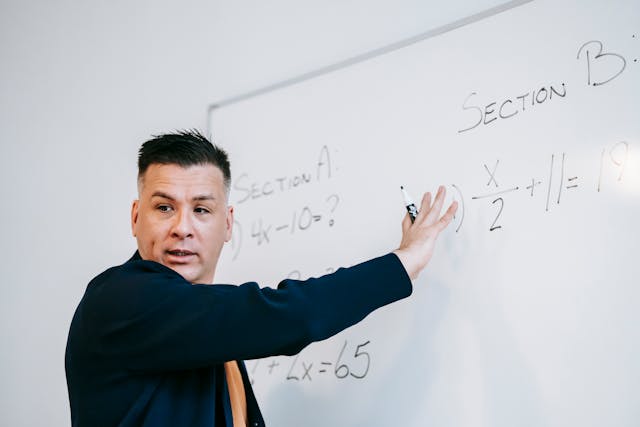Academic challenges are part of every student’s journey. Some subjects come naturally, while others may feel like a constant uphill battle. Among the most commonly complex subjects for students? Math and physics. These areas require not only understanding complex concepts but also applying them in problem-solving scenarios that demand logical thinking and confidence. So how can you tell if your child is just going through a tough week or if they may need extra support?
Let’s take a closer look.
Signs Your Child Might Be Struggling
Sometimes, it is not what your child says, but what they do that reveals the real picture. Maybe they used to enjoy math or physics, but now avoid homework, skip studying, or complain of headaches before tests. Maybe their grades have started to slip, or they show visible frustration when working through equations or physics problems.
Changes in attitude can also signal deeper struggles. A child who once approached school with curiosity may now seem disengaged or anxious. You might hear phrases like “I am just not a math person” or “Physics makes no sense.” While all students face occasional difficulty, consistent stress or lack of motivation is worth paying attention to.
Recognizing the Academic Red Flags
It is easy to brush off academic issues as just a phase, but some signs should not be ignored. For example:
- Frequent incomplete or missing assignments in math or physics
- A drop in test scores despite regular studying
- Lack of confidence when tackling problem-solving exercises
- Spending excessive time on homework without real progress
These are often early indicators that your child is not grasping core concepts. And in subjects like math and physics, missing foundational ideas makes future lessons even harder to understand.
How a Math and Physics Tutor Can Help
At a certain point, you may find yourself asking: “Is it time for a tutor?” The truth is, many parents wait too long. The sooner support arrives, the easier it is for a student to regain control and rebuild their confidence. A math and physics tutor can offer something that even the best classroom teacher cannot: personalized attention.
Tutoring sessions are built around your child’s unique learning style. Instead of moving forward with the class regardless of understanding, a tutor can pause, revisit concepts, and work through challenging problems at a pace that feels right for the student. Whether it is algebra or Newton’s laws, the tutor becomes a consistent, judgment-free resource. This individual focus often leads to breakthroughs that would not be possible in a traditional classroom.
When School Alone Is Not Enough
Even with caring teachers, students can get lost in the crowd. Class sizes, curriculum pressure, and the fast pace of instruction mean that not every child gets the help they need. Some students might be too shy to ask questions in front of peers. Others might not even realize what they do not understand until it is too late.
Tutors fill this gap. They identify the specific areas of weakness, reinforce past lessons, and prepare students for upcoming material — all without the pressure of grades or judgment. It is a space where mistakes become stepping stones, not setbacks.
Beyond Grades: Supporting Long-Term Learning
Getting a tutor is not just about improving grades, although that is often a welcomed result. It is also about developing lifelong skills. Working regularly with a tutor teaches students how to break down complex problems, manage their time, ask for help, and stay organized — skills that will benefit them far beyond school.
In fact, some parents notice that once tutoring begins, their children not only feel better about math and physics, but also become more self-assured in other areas of school and life. Academic support has a ripple effect that can boost confidence, motivation, and even future career interest in science or engineering.
Talking to Your Child About Tutoring
Introducing the idea of tutoring can feel tricky. Some children might resist at first, feeling embarrassed or like they are falling behind. It helps to frame tutoring as a tool for success rather than a punishment. Make it clear that asking for help shows strength, not weakness. Everyone learns differently, and having support is part of building a smart strategy for school and beyond.
You might say, “You are not alone in this. A lot of students work with tutors to get ahead or feel more confident.” When your child sees tutoring as a partnership, they are more likely to engage with it positively.
Making the Right Choice
If you decide tutoring is the right move, take time to find a good match. Look for someone who not only understands the subject matter but also communicates clearly and builds trust with your child. Chemistry matters just as much as credentials. When students feel comfortable, they are more likely to open up and put in the effort.
And do not forget to stay involved. Ask your child how sessions are going. Check in with the tutor from time to time. Progress in math and physics takes teamwork, and you are a key part of that team.




